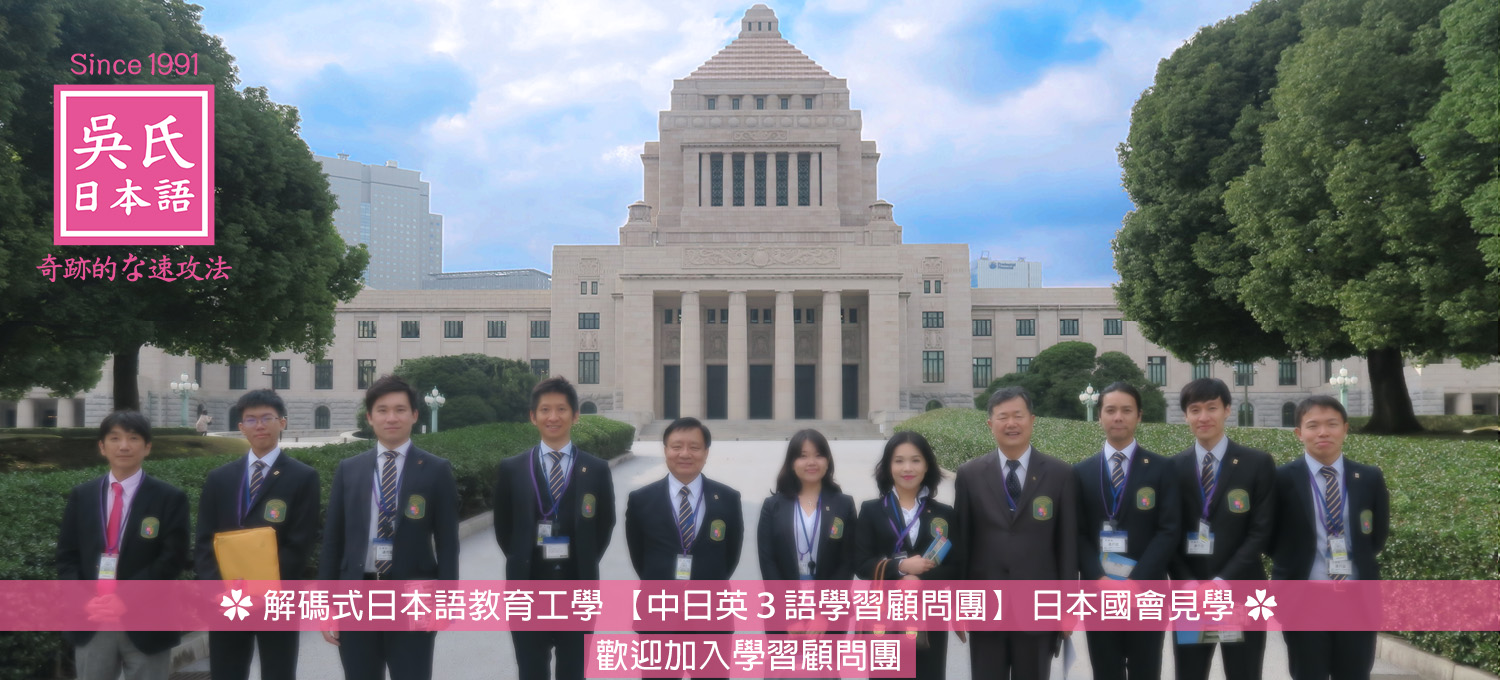原文出處:TAIPEI TIMES http://www.taipeitimes.com/News/editorials/archives/2019/11/09/2003725508/1
Taiwan’s Japanese edge nears its end
The dwindling number of Taiwanese students studying Japanese is lamentable, while the speed of this decline is dizzying. It is no exaggeration to say that Taiwan’s competitiveness in Japanese-language ability is nearing its end.
This loss is magnified by the situation in China, where Japanese is one of six languages — alongside English, Russian, French, German and Spanish — that high-school students can select for their university entrance exam. While it might be difficult for Taiwan to offer as many options, it should at least feature Japanese, the language of the world’s third-largest economy.
Under former premier William Lai (賴清德), the Cabinet pursued a policy to make English a second official language. Meanwhile, in November last year, the creators of Decodothology, a Japanese language-learning app developed in Taiwan, visited Japan to meet Japanese ministers and legislators to share information from their research.
According to the developers, the app prepares students to read and understand Japanese after a single semester of study. It then provides cross-language analysis between Chinese, Japanese and English so that students can simultaneously study all three. Many Taiwanese long to be proficient in these languages.
Taiwan’s university entrance exam is notoriously competitive. Every year, thousands of students lose a spot at university by a single point. By choosing Japanese, students free up time to prepare other subjects.
Chinese businesses expect a massive growth in the number of students studying Japanese and the team behind Decodothology has received a great deal of interest in China and Japan.
Under the Taiwan-Japan working holiday program, young Taiwanese can easily travel to Japan, without Japanese-language skills. While the jobs offered are low-level positions, the salaries are several times higher than equivalent jobs in Taiwan.
Studying Japanese in Japan while earning money seems like a dream opportunity, but a recent TV program exposed this illusion. Two years in Japan under the arrangement provides no guarantee of the language mastery a student needs to pass one of the higher levels of the Japanese Language Proficiency Test.
After clocking out from work, students are physically exhausted and unable to study effectively. It is also unlikely that they would receive a salary increase or training that could result in regular employment, and so most Taiwanese in the plan end up leaving Japan somewhat dejected.
The TV program warned that after a short period of earning a high wage in Japan, many participants are unwilling to accept lower Taiwanese salaries and end up drifting between part-time jobs. Having originally hoped to accumulate new skills and work experience, they find that, on their return, they have sacrificed part of their precious youth on a fruitless endeavor.
For China, young Chinese can only study in Japan on student visas, so their only option is to first master Japanese at home. According to Japan Student Services Organization data, Chinese students constitute 40.2 percent of all international students in Japan, whereas Taiwanese account for 3.3 percent.
The US-China trade dispute further exacerbates this trend, as Chinese businesses establish cram schools and dormitories in Japan to prepare its students for Japan’s top universities.
A Chinese-Japanese-English trilingual era is here. The substantial disparity between the number of Taiwanese and Chinese students studying in Japan might be a harbinger of a future in which Taiwan’s strong relationship with Japan and the international competitiveness of its students has disappeared.
Wu Chi-che is managing director of the Taipei Foundation of Finance.
Translated by Edward Jones
